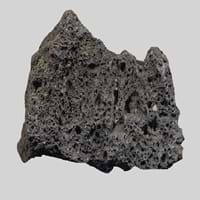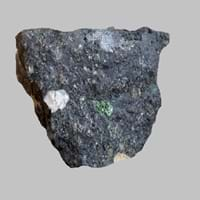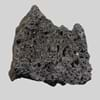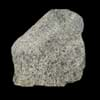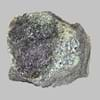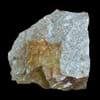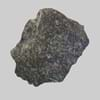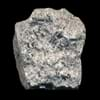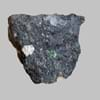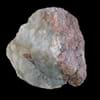Definition
Scoria is a dark-colored extrusive igneous rock with abundant round bubble-like cavities
Kimberlite is a rare, blue-tinged, coarse-grained intrusive igneous rock, which sometimes contains diamonds and is mostly found in South Africa and Siberia.
Origin
Unknown
Kimberley, South Africa
Discoverer
Unknown
Unknown
Etymology
From late Middle English (denoting slag from molten metal), from Greek skōria refuse, from skōr dung
From Kimberley + -ite, from the name of the South African town of Kimberley where the rock was first found.
Class
Igneous Rocks
Igneous Rocks
Sub-Class
Durable Rock, Medium Hardness Rock
Durable Rock, Hard Rock
Other Categories
Fine Grained Rock, Opaque Rock
Coarse Grained Rock, Fine Grained Rock, Opaque Rock
Texture
Vesicular
Porphyritic
Color
Black, Brown, Dark Grey to Black, Red
Black, Bluish - Grey, Brown, Dark Greenish - Grey, Green, Grey
Durability
Durable
Durable
Scratch Resistant
Yes
Yes
Appearance
Glassy and Vesicular
Dull and Banded
Interior Uses
Decorative Aggregates, Interior Decoration
Countertops, Decorative Aggregates, Homes, Interior Decoration
Exterior Uses
Garden Decoration, Paving Stone
As Building Stone, Paving Stone, Garden Decoration
Other Architectural Uses
Curbing
Curbing
Construction Industry
Cement Manufacture, Construction Aggregate, for Road Aggregate, In landscaping and drainage works
As a Flux in the Production of Steel and Pig Iron, As a Sintering Agent in Steel Industry to process Iron Ore, As Dimension Stone, Cement Manufacture, for Road Aggregate, Making natural cement, Manufacture of Magnesium and Dolomite Refractories
Medical Industry
Not Yet Used
Taken as a Supplement for Calcium or Magnesium
Antiquity Uses
Artifacts, Monuments, Sculpture
Artifacts, Monuments, Sculpture, Small Figurines
Commercial Uses
As a traction material on snow-covered roads, Creating Artwork, High-temperature insulation, In gas barbecue grills
An Oil and Gas Reservoir, As a Feed Additive for Livestock, Gemstone, Metallurgical Flux, Production of Lime, Soil Conditioner, Source of Magnesia (MgO)
Types
Not Available
Basaltic Kimberlites and Micaceous Kimberlites
Features
Available in Lots of Colors and Patterns, Generally rough to touch, Surfaces are often shiny
Always found as volcanic pipes over deep continental crust, Host rock for Diamond, Is one of the oldest rock, Surfaces are often shiny
Archaeological Significance
Famous Monuments
Data Not Available
Data Not Available
Famous Sculptures
Data Not Available
Data Not Available
Pictographs
Used
Not Used
Petroglyphs
Used
Not Used
Formation
Scoria forms when magma containing huge amount of dissolved gas flows from a volcano during an eruption.
Kimberlite is an igneous rock and is the main source of diamonds. Its formation takes place deep beneath the Earth’s surface between 150 to 450 kilometres, and are erupted rapidly and violently.
Mineral Content
Apatite, Biotite, Calcite, Feldspar, Hematite, Hornblade, Ilmenite, Magnetite, Olivine, Pyroxene, Quartz, Silica
Garnet, Olivine, Phlogopite, Pyroxene
Compound Content
Ca, NaCl
Aluminium Oxide, NaCl, CaO, Iron(III) Oxide, FeO, Potassium Oxide, MgO, MnO, Sodium Oxide, Silicon Dioxide, Titanium Dioxide
Types of Metamorphism
Burial Metamorphism, Cataclastic Metamorphism, Contact Metamorphism
Burial Metamorphism, Cataclastic Metamorphism, Contact Metamorphism, Hydrothermal Metamorphism, Impact Metamorphism, Regional Metamorphism
Types of Weathering
Biological Weathering, Chemical Weathering, Mechanical Weathering
Biological Weathering, Chemical Weathering, Mechanical Weathering
Types of Erosion
Chemical Erosion, Coastal Erosion, Glacier Erosion
Chemical Erosion, Coastal Erosion, Glacier Erosion, Sea Erosion, Water Erosion, Wind Erosion
Grain Size
Fine Grained
Fine to Coarse Grained
Fracture
Conchoidal
Conchoidal
Porosity
Highly Porous
Very Less Porous
Luster
Subvitreous to Dull
Subvitreous to Dull
Cleavage
Perfect
Conchoidal
Toughness
2.1
Not Available
Specific Gravity
Not Available
2.86-2.87
Transparency
Opaque
Translucent to Opaque
Density
Not Available
2.95-2.96 g/cm3
Specific Heat Capacity
Not Available
Resistance
Heat Resistant, Impact Resistant, Pressure Resistant, Wear Resistant
Heat Resistant, Impact Resistant
Deposits in Eastern Continents
Asia
Afghanistan, Indonesia, Japan, Russia
Russia
Africa
Ethiopia, Kenya, Tanzania
Angola, Botswana, Cameroon, Ethiopia, South Africa
Europe
Greece, Hungary, Iceland, Italy, Turkey
England, Hungary, Iceland, United Kingdom
Others
Not Yet Found
Antarctica
Deposits in Western Continents
North America
Bahamas, Barbados, Canada, Costa Rica, Cuba, Jamaica, Mexico, USA
Canada, USA
South America
Argentina, Chile, Ecuador, Peru
Argentina, Colombia, Ecuador
Deposits in Oceania Continent
Australia
New Zealand, Western Australia
New South Wales, New Zealand, South Australia, Western Australia
